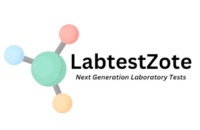Test Description
The severity of the disease can range from mild (thalassemia minor) to severe (thalassemia major), depending on the specific mutations present.
Common Mutations of Beta Thalassemia
The following are five common mutations associated with beta thalassemia that can be identified using polymerase chain reaction (PCR):
- IVS1-5 (G→C): This mutation occurs in the intron 1 region and is prevalent in many populations, particularly in Southeast Asia.
- IVS1-1 (G→T): Another mutation in intron 1, this variant also contributes significantly to the incidence of beta thalassemia.
- Codon 41/42 (-TCTT): This deletion mutation leads to a complete absence of beta-globin production and is one of the most common mutations globally.
- Codon 8/9 (+G): This mutation results in reduced beta-globin synthesis and is frequently found in various ethnic groups.
- 619-bp Deletion: This large deletion affects the beta-globin gene and is particularly noted in specific population
Indications of Beta Thalassemia Test
This test is indicated for:
- Individuals with a family history of beta thalassemia.
- Patients presenting with unexplained anemia.
- Screening in high-risk populations, particularly in regions with a high incidence of thalassemia.
Patient Preparation/Instructions
- Sample Collection: A blood sample (5 ml) should be collected in an EDTA tube.
- Fasting: No fasting is required prior to the test.
- Medication: Inform your healthcare provider about any medications you are taking.
Diagnostic Approach
The diagnosis of beta thalassemia typically involves a combination of clinical evaluation and laboratory tests:
- Clinical Presentation: Symptoms may include fatigue, pallor, jaundice, and splenomegaly. Family history and ethnic background are crucial for risk assessment.
- Laboratory Tests:
- Complete Blood Count (CBC): Shows microcytic anemia with low hemoglobin levels.
- Hemoglobin Electrophoresis: Helps quantify different hemoglobin types and assess for elevated HbF or HbA2 levels.
- Molecular Testing: PCR is used to detect specific mutations in the HBB gene.
Typical Reference Values
Reference values can vary based on the population and specific mutations tested. Generally, the following mutations are assessed:
- Codon 41/42 (-TCTT) – Most common mutation.
- IVS1-5 (G>C) – Significant prevalence in various populations.
- Codon 8/9 (+G) – Commonly found mutation.
- IVS1-1 (G>T) – Notable for its impact on thalassemia severity.
- FR 8-9 (+G) – Frequently identified in specific ethnic groups.
Turnaround Time
The typical turnaround time for results is approximately 14 days.
How To Order This Test
To order the Beta Thalassemia test, please click the ‘Order Test’ button and add it to your cart.

